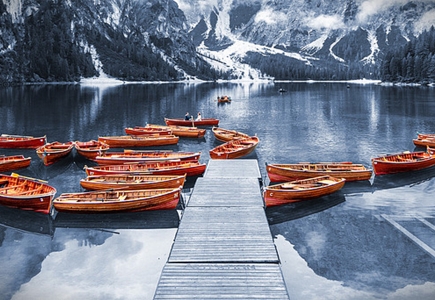
MOOC n°4 - Water Cooperation and Diplomacy


This MOOC is a flagship activity within the framework of the Universities’ Partnership for Water Cooperation and Diplomacy (UPWCD). It is the product of the coordinated efforts of the University of Geneva, IHE-Delft with the valuable contributions of UPWCD partners such as the Deutsch-Kasachische Universität (DKU), Indian Institute of Technology Guwahati (ITT), Oregon State University (OSU), International Water Management Institute (IWMI), The International Union for Conservation of Nature (IUCN) as well as a number of eminent water diplomacy experts from around the world.
- This MOOC is addressed to a very diverse audience i.e. anyone interested in addressing challenges related to transboundary water cooperation and diplomacy.
- There is no silver bullet to address such challenges; therefore the objective of this learning tool is to enable you to understand the complexities of water cooperation and diplomacy; and be able to anticipate, prevent and transform water-related disputes.
- Your are trained by a range of eminent experts who are all part of a global and diverse network, the Universities Partnership for Water Cooperation and Diplomacy.
The trailer is available below.
Course plan
Module 1 - Introduction to the core features of the concept of water diplomacy
Learning objectives:
Identify the characteristics of the general concept of water diplomacy
Identify the (i) scales; (ii) actors; and (iii) challenges of water diplomacy
Recognize on which accounts and to what extent has the concept of water diplomacy developed over timeModule 2 - Causes and dynamics of water conflicts and cooperation
Learning objectives:
Identify the causes and dynamics of water conflicts and cooperation
Recognize the role of different stakeholders in water conflicts
Recognize different theoretical frameworks explaining water conflict and cooperation
Identify the root causes of water conflictsModule 3 - Water diplomacy tools and processes
Learning objectives:
Recognize the various tracks of water diplomacy and identify their characteristics
Recognize and compare various tools and processes of water diplomacy and identify their specificities
Determine and use pertinent tools/processes of water diplomacy according to a given situationModule 4 - Legal and institutional frameworks for water cooperation and diplomacy
Learning objectives:
Outline existing formal legal frameworks applicable to water diplomacy processes
Compare existing formal and informal institutional frameworks for water cooperation and diplomacyModule 5 - The roles of data, information and knowledge in water cooperation and diplomacy
Learning objectives:
Explain what types of data and information are used for transboundary water cooperation.
Examine the interaction between science, policy and practice in relation to transboundary water cooperation
Assess how different actors influence transboundary water cooperation by using data-driven tools and science-based information.




